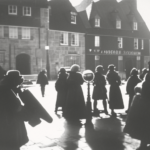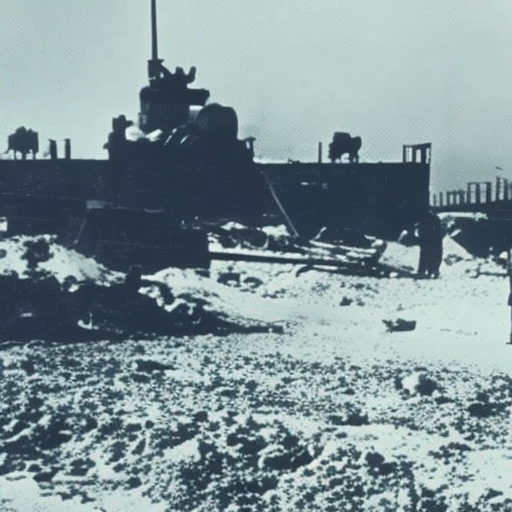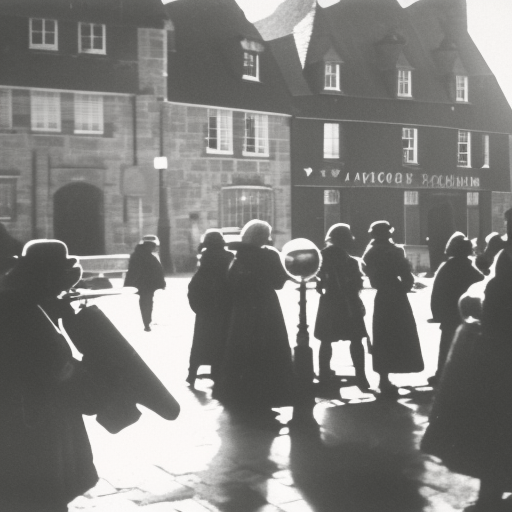The Dreyfus Affair: A Summary
The Dreyfus Affair was a political scandal that rocked France in the late 19th and early 20th centuries. It revolved around the wrongful conviction and subsequent exoneration of Captain Alfred Dreyfus, a Jewish officer in the French army. The affair exposed deep-seated anti-Semitism in French society and had far-reaching consequences for politics, the military, and the public’s perception of justice.
The Arrest and Conviction of Alfred Dreyfus
In 1894, Captain Alfred Dreyfus was arrested and charged with treason for allegedly passing military secrets to Germany. The evidence against him was weak and based on forged documents, but Dreyfus was found guilty in a closed military trial and sentenced to life imprisonment on Devil’s Island, a remote penal colony off the coast of French Guiana.
The Discovery of the Real Culprit
In 1896, evidence came to light indicating that another officer, Major Ferdinand Walsin Esterhazy, was the real culprit. However, the military establishment, driven by anti-Semitic sentiments, refused to acknowledge this and instead sought to cover up the miscarriage of justice. The case was further complicated by the fact that Dreyfus was Jewish, and anti-Semitic stereotypes and prejudices played a significant role in the proceedings.
The Emergence of the Dreyfusards
A group of intellectuals, journalists, and politicians known as the Dreyfusards emerged to support Dreyfus and demand a retrial. They argued that Dreyfus had been unfairly convicted and that the military had engaged in a conspiracy to protect its own reputation. Prominent figures such as writer Emile Zola and politician Georges Clemenceau played key roles in exposing the injustice and rallying public opinion.
The Public Debate and Division
The Dreyfus Affair sparked a fierce public debate that divided French society. Supporters of Dreyfus, known as Dreyfusards, believed in his innocence and called for justice and equality. On the other hand, anti-Dreyfusards, fueled by anti-Semitism and nationalism, defended the military establishment and accused the Dreyfusards of betraying France.
The Role of Emile Zola
In 1898, Emile Zola published an open letter titled “J’Accuse” in a leading newspaper, accusing the military of a cover-up and demanding justice for Dreyfus. This letter had a profound impact, exposing the corruption and anti-Semitism at the heart of the affair. Zola was subsequently charged with libel and had to flee to England to avoid imprisonment.
The Revision of the Case and Dreyfus’ Pardon
In 1899, a retrial was finally granted, and new evidence supporting Dreyfus’ innocence emerged. Despite attempts by the military to suppress this evidence, Dreyfus was ultimately acquitted and released from prison. However, he was not fully exonerated until 1906, when a military court recognized his innocence and reinstated him in the army with the rank of major.
Legacy and Impact
The Dreyfus Affair had a profound impact on French society and politics. It exposed the deep-rooted anti-Semitism prevalent in the country and led to a reevaluation of French identity and values. The affair also contributed to the decline of the French monarchy and the rise of the Third Republic. It highlighted the importance of a free press and the rule of law, and it became a symbol of the fight against injustice and discrimination.
In conclusion, the Dreyfus Affair was a pivotal moment in French history that exposed the anti-Semitism and corruption within the military establishment. It ignited a fierce public debate and led to the emergence of the Dreyfusards, who fought for justice and equality. The affair ultimately resulted in Dreyfus’ exoneration and had a lasting impact on French society, politics, and the fight against discrimination.












